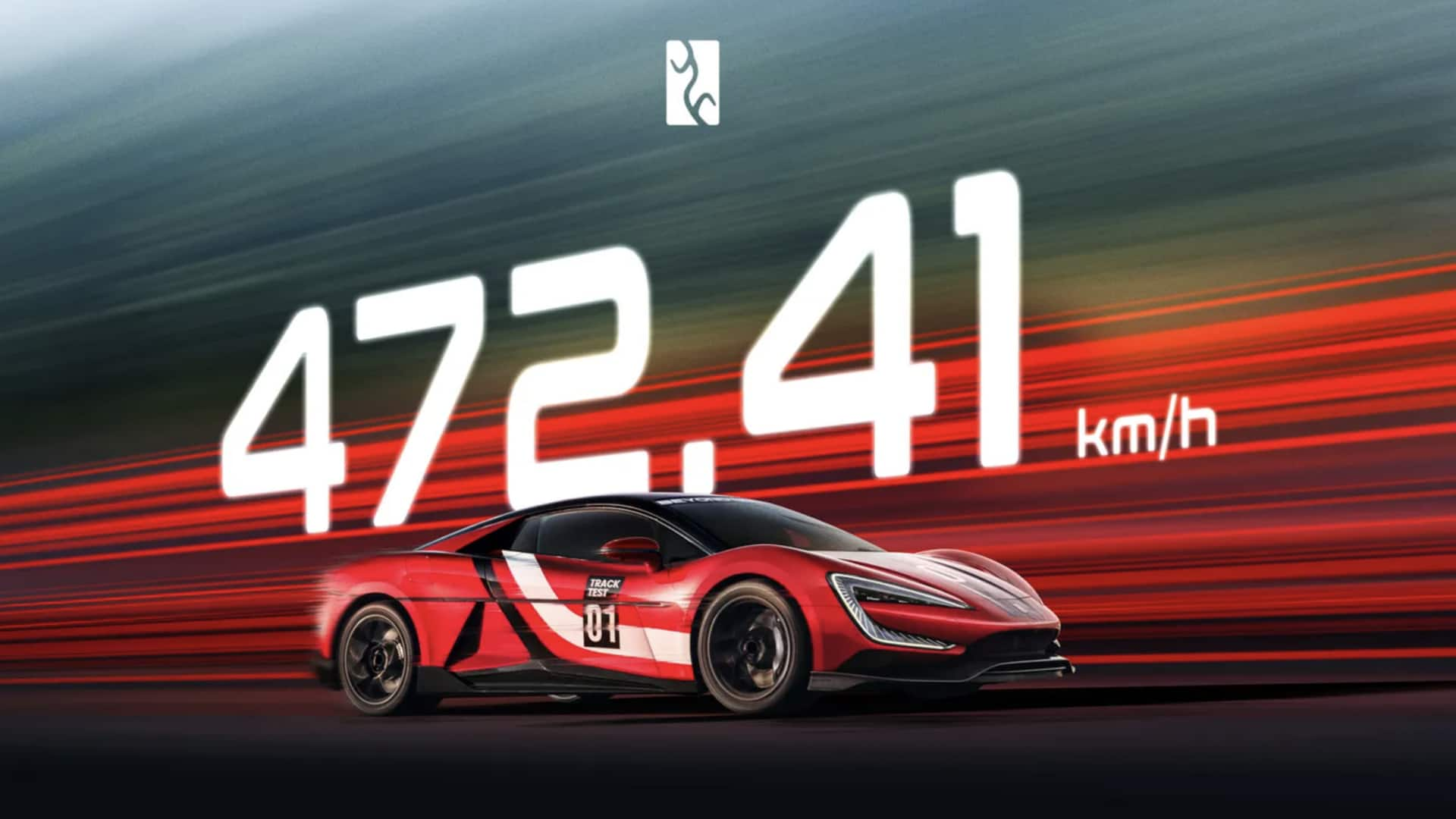
BYD's Yangwang U9 hits 472km/h, breaks EV top-speed record
What's the story
The Yangwang U9 Track Edition, a model from the luxury performance brand Yangwang owned by BYD, has officially set a new world record for the fastest electric vehicle (EV). The record was achieved on August 8 at the ATP Automotive Testing Papenburg track in Germany, where it reached an astonishing top speed of 472.41km/h. This beats the previous record of 438.7km/h set by Aspark OWL SP600 hypercar in 2024 at the same venue.
Vehicle specifications
Yangwang's e4 platform powers record-breaking U9
The U9 Track Edition is an upgraded version of the standard road-going U9, designed for extreme speed and stability. It features Yangwang's e4 Platform, a quad-motor system with four 30,000rpm motors, each tuned to deliver 755hp. This gives the car a combined output of over 3,000hp and an impressive power-to-weight ratio of 1,217hp/tonne—higher than even the legendary Koenigsegg One:1.
Technological advancements
DiSus-X intelligent body control system enhances stability at high speeds
The U9 Track Edition also comes with the DiSus-X Intelligent Body Control System, a suspension tech that adjusts each wheel independently in real-time. This keeps the car stable during extreme acceleration and high-speed cornering. For this record attempt, Yangwang worked with Giti Tire to create custom semi-slick tires that can handle extreme loads. A carbon fiber splitter and enhanced thermal management further boosted the car's ability to sustain such unprecedented speeds.
Performance benchmark
The future of speed is electric
Visually, the U9 Track Edition is similar to the standard model, but its mix of technology and design takes electric supercars to a whole new level. By breaking the 472.41km/h barrier, Yangwang has not only set a new standard for EV performance but also challenged traditional hypercar benchmarks.